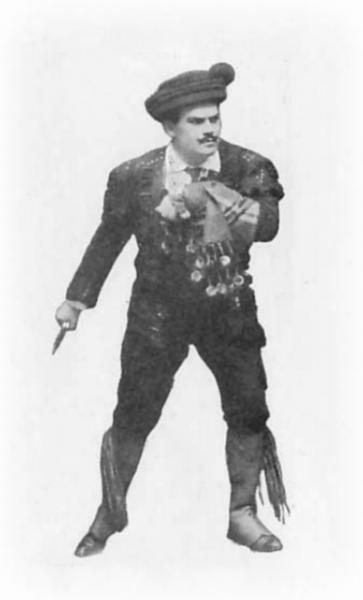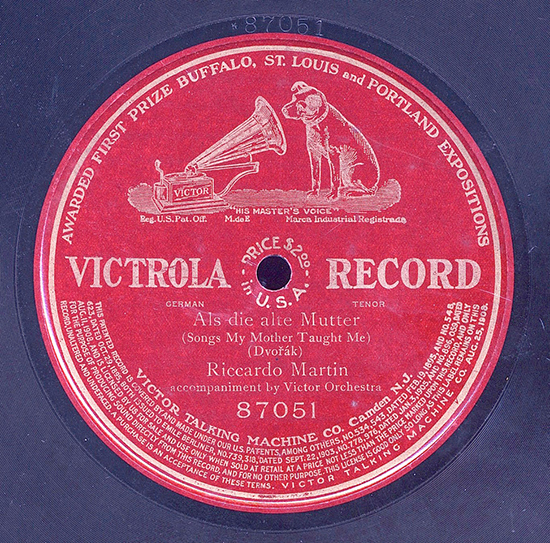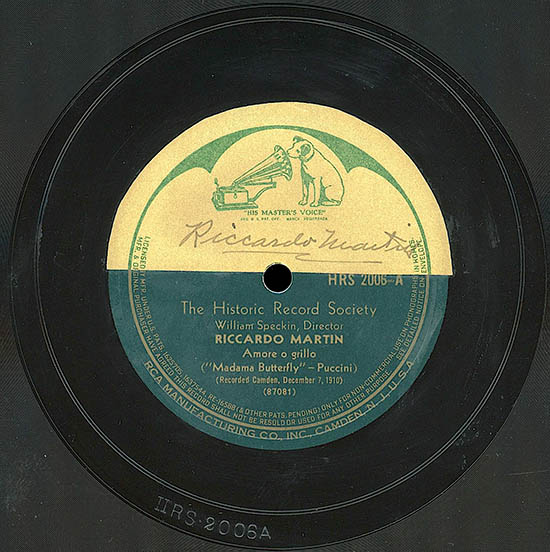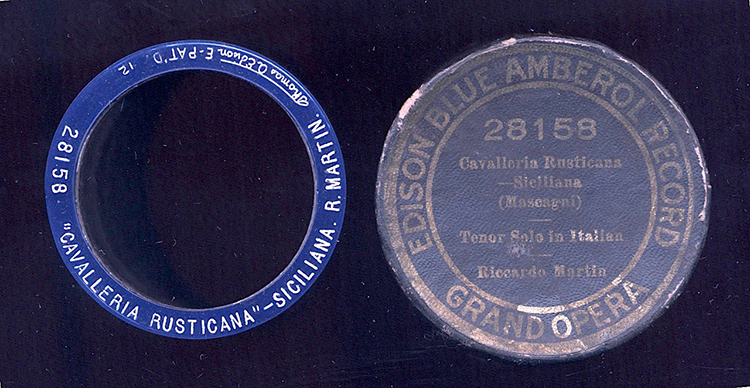Riccardo Martin
18 November 1874 Hopkinsville – 11 August 1952 New York City
Riccardo Martin as José
In RA format
| Riccardo Martin | Cavalleria rusticana: O Lola
|
In RA format
In RA format
Born Hugh Witfield Martin, he studied violin in Nashville, then composition at Columbia University in New York, and in Berlin. He had
already written several musical pieces when his voice was discovered in 1901; with the financial help of an industrialist, he went to
Paris and received vocal training from Giovanni Sbriglia, Jean de Reszke and
Léon Escalaïs; he also traveled to Florence and Naples for further
voice lessons.
He made his debut in 1904 in Nantes as Boito's Faust. In 1905, he sang in Italy (Verona, Milano, Florence), and in 1906, he returned to
the USA and appeared with Henry Russell's touring opera company (for instance in New Orleans and Boston). In 1907, he made his first
appearance at the Metropolitan Opera, again in Mefistofele (with Fjodor Shaljapin). He was very busy at the Met until 1915 (plus
one single performance in 1917), singing also Gounod's Faust, Canio, Pinkerton, Puccini's des Grieux, Turiddu, Cavaradossi, Don
José, Manrico, Radamès, Hagenbach, Rodolfo, Iolan in The pipe of desire by Frederick Shepherd Converse, Enzo Grimaldo,
Quintus in the world premiere of Mona by Horatio Parker, Christian in the world premiere of Cyrano by Walter Damrosch,
Hoffmann, the tenor parts in Rossini's Stabat mater and Verdi's Requiem, plus an unusually large number of concerts –
a total of 281 evenings. In 1910, he also sang in Mexico City, and in both 1910 and 1911 a whole lot at Covent Garden. In 1916/17, he was
part of the Boston National Opera Company and toured America with them (he was particularly successful at the Lexington Theater in New
York). He spent the last years of his stage career in Chicago (1920–23).
After retiring, he lived in Paris and reported for "Opera News" from there; he later moved to the Bermudas.
Reference: Kutsch & Riemens
I wish to thank Anton Bieber for the label scans and the Dvořák and Butterfly recordings.
I wish to thank Thomas Silverbörg for the pictures and recordings (Trovatore, Cavalleria).
|




